Celebrating Volunteers’ Week 2025
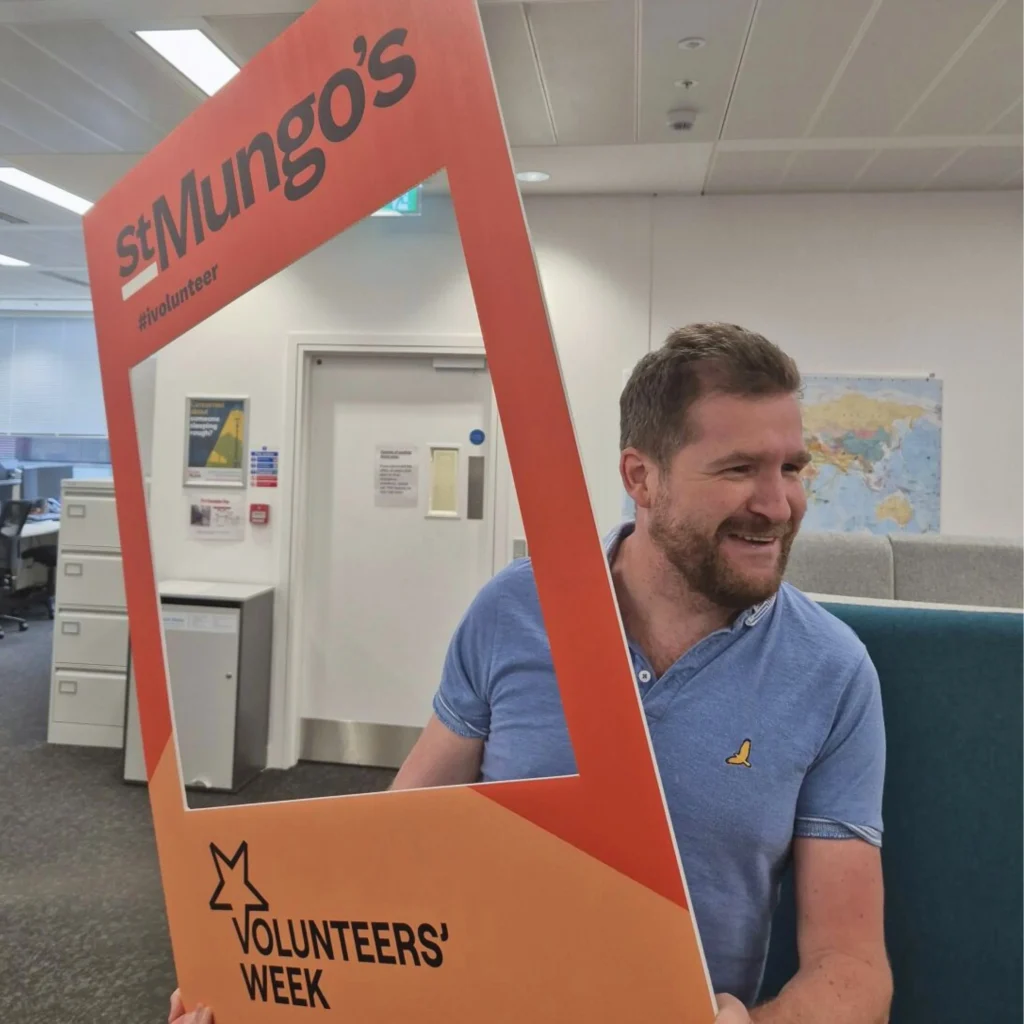
At St Mungo’s, our volunteers are the heartbeat of what we do. Since 1969 when St Mungo’s was started by volunteers, they have remained a vital part of the way that we work and the support we provide clients. We recognise the value and the contribution that volunteers make all year round, but between the 2nd and the 8th of June it is brought into sharper focus as we celebrate Volunteers’ Week. During Volunteers’ Week, which starts today, we celebrate and highlight the critical role our volunteers play at St Mungo’s. During the week we will be running two main celebration events. One in London on the 5th of June and One in Bristol on the 2nd of June. These events give us the opportunity to properly thank and celebrate our volunteers. At both events we will be handing out our Volunteers Awards. These awards are run in partnership with the Marsh Charitable Trust and volunteers whose nominations were successful are awarded £250 and a certificate. Volunteering continues to evolve and at St Mungo’s, it’s no different. Following Covid we were hit by significant reductions in volunteering and we lost over half our volunteers. Since then we have adapted and tried to increase the level of flexibility in our volunteer roles. The development of micro volunteer roles has allowed us to increase the ways in which volunteers can provide support with translation, videography, photography, beauty and hairdressing volunteers being advertised and recruited to. We now have over 100 volunteers who are able to provide support on an adhoc basis. If you’re interested in volunteering, please click here. Since Client Involvement joined the Volunteering, Apprenticeships and Student Placements team, we have also seen an increase in opportunities for clients to become involved. The Client Advisory Board, the Ambassador scheme, client placements and initiatives such as our “repairs champions” ensure that clients have meaningful roles they can undertake, developing new skills and confidence but also adding significant value to the organisation. Volunteering is only effective if the right support is in place so I want to thank the team (Maria, Mena, Imogen, Frances and Amy) for all their work in making sure we bring in and support volunteers in the right way but also a huge thank you to volunteer supervisors across the organisation for the brilliant way in which you support and involve volunteers. Happy Volunteers’ Week 2025
Paws for hope: how pets bring comfort and companionship to people experiencing homelessness
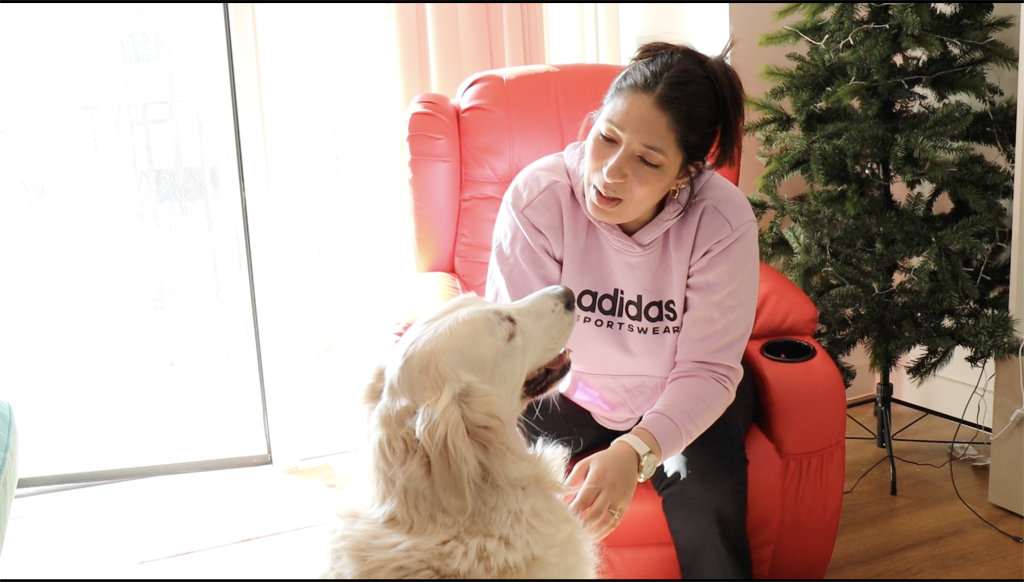
Introduction: April marks National Pet Month in the UK; a time to celebrate the special bond between people and their pets. For many people experiencing homelessness, this bond is even more profound. At St Mungo’s, we’ve long recognised the vital role pets play in the lives of our clients, offering comfort, emotional support, and unconditional companionship in the most difficult of circumstances. This month, we’re highlighting the unique relationships between our clients and their pets, and how we used a trauma informed approach to support them both, especially through our pet-friendly accommodations in various cities. Why pets matter to people experiencing homelessness For people sleeping rough, isolation is often a harsh reality. Pets, especially dogs, provide loyal companionship, a sense of purpose, and even safety. Pets give people a reason to keep going. They’re a source of love in a world that can often feel cold and unwelcoming. And the bond runs deep, it’s not uncommon for people to put their pet’s needs before their own. Supporting clients and their pets: A trauma-informed approach At St Mungo’s, we understand that separation from a pet can be devastating. That’s why many of our accommodation services are pet friendly. We believe no one should have to choose between shelter and their companion. For many, their pet is their only consistent source of emotional support. Recognising that bond builds trust and opens the door to longer-term support. A day in the life: frontline staff and pet-friendly outreach Our workers regularly meet people who will only engage with support services if their pet can stay with them. These frontline colleagues sometimes face logistical challenges: finding pet-friendly emergency placements and making sure both the client and pet feel safe. But they do it with compassion and persistence. Click here to learn more about how we support people experiencing homelessness with their pets. The barriers people face when owning pets while homeless Despite the strong bond between clients and their pets, there are significant barriers to staying together. Many hostels and housing services across the UK still do not allow animals, forcing people to choose between shelter and their companion. At St Mungo’s, we advocate for more inclusive housing models. There are also legal and safety considerations. Some clients worry about their pets being taken away or facing restrictions due to breed laws. Why pet-friendly services work By acknowledging the importance of the human-animal bond, pet-friendly services see higher engagement rates. Clients feel more relaxed, supported, and open to taking steps toward recovery. How you can help this national pet month During National Pet Month, we’re encouraging our supporters to think of the pets who walk the journey alongside people experiencing homelessness. Here’s how you can make a difference: Donate pet supplies – Food, collars, leashes, toys, and blankets make a huge difference. Support our pet-friendly services by contributing to our ongoing work. Volunteer your time – if you’re a trained vet or pet professional, consider partnering with us. Fundraise with a pet theme – Host a dog walk, pet photo competition, or bake sale to raise awareness and funds. Advocate for inclusive housing policies that keep pets and their people together. Looking ahead: compassionate, inclusive care St Mungo’s remain committed to providing holistic care that includes recognising the deep emotional lifeline pets provide. Through pet-friendly services, collaborative partnerships, and the support of the public, we aim to ensure no one is left behind: human or animal. Call to action This National Pet Month, let us recognise the powerful role pets play in supporting people through homelessness. With your support, we can continue to create safe, compassionate spaces where clients and their beloved animals can begin the journey to recovery together. Help us keep people and their pets together. Donate or get involved today.
How we support Muslim clients and colleagues during Ramadan at St Mungo’s

At St Mungo’s, we recognise the importance of Ramadan for our Muslim clients and colleagues. The recently concluded holy month is a time of fasting, reflection, and community, but it can also bring challenges for people experiencing homelessness. That’s why we take thoughtful steps to ensure our services are inclusive, supportive, and responsive to the needs of those observing Ramadan each year. This article explores how we support Muslim clients and colleagues during Ramadan. Providing nutritious meals for Iftar and Suhoor Fasting from dawn until sunset means that access to suitable food at the right times is essential. Some of our services receive food donations that include halal meals, and during Ramadan, we adjust meal schedules to ensure clients have access to food after fasting at sunset (Iftar). Supporting colleagues observing Ramadan Many of our Muslim colleagues also observed Ramadan, and we strived to create a workplace to support this : Offering flexible working arrangements where possible. Providing prayer spaces where feasible. Avoiding scheduling key meetings or events at times that clash with Iftar. Removing communal food from shared spaces out of respect for those fasting. A colleague Yewande, when asked about her experience working as a colleague observing Ramadan, said: What is your experience working as a colleague observing Ramadan? Have any adjustments been made, such as flexible working hours or additional break allowances? My experience working while observing Ramadan has been overwhelmingly positive, thanks to the understanding and support from my colleagues. There’s been a noticeable effort to ensure workloads are distributed thoughtfully, preventing anyone from feeling overwhelmed during fasting hours. One of the most helpful adjustments has been the introduction of flexible break times. This allows staff to split their breaks, making it easier to rest or align time off with Iftar, (the meal that breaks the fast). Additionally, the service I work in offers flexibility with start and finish times, allowing those observing Ramadan to adjust their schedules. While I haven’t personally needed to use this option, I appreciate the thoughtfulness behind it. It’s encouraging to see how small, considerate adjustments can create a more supportive environment, helping everyone feel valued especially during such an important time. One of our frontline workers also shared his experience during the fasting: How have you found working during Ramadan? Have you had any adjustments made to your work to support you? I’ve had a lovely experience fasting during Ramadan while working at St Mungo’s. It’s a part of my life, and I’ve learned to integrate it into my work. In terms of religious inclusivity, one important aspect of my Muslim life is the need for prayer (salah), which requires a designated space. When I first joined the team, there wasn’t a dedicated space available. However, accommodation was made by putting up a sign in one of the assessment rooms for dual use, both for assessments and prayers. How can St Mungo’s improve its approach to religious inclusivity, not just for Ramadan but year-round. As for how St Mungo’s can improve its approach to religious inclusivity, I think it would be helpful to provide clear communication and understanding around flexible working arrangements during periods like Ramadan (if incorporated). Additionally, ensuring that spaces for prayer are consistently available year-round across the different services (as was the case at the head office, which I found useful during my training there) would be a great step forward. Creating inclusive and supportive environments For many Muslim clients, Ramadan is about more than just fasting—it’s a time for prayer, reflection, and connection. We work to ensure our accommodation and support services are as accommodating as possible. We spoke with Becky, a service manager at one of our assessment hubs about the support they were offering to clients: How does your service support Muslim clients during Ramadan, especially those who are fasting? Do you offer any guidance or resources to help clients observe Ramadan while experiencing homelessness? As a fast-paced, rapid move on service we encourage clients to go on viewings and attend assessments regularly as is the nature of how we work. However, it’s important we have an awareness of clients of the Islamic faith and those observing Ramadan and fasting during this time. This is a team effort, and the team ensure that all staff are aware of clients who observe the Islamic faith so that we can amend our ways of working. The team will check the time suitability of an assessment or viewing and work as flexibly as possible. Sometimes, staff will mention times of the day when certain clients have expressed, they’re better positioned to join for meetings or key working sessions, and we’ll always do our best to support this. This year, we also provided dates on our reception. These were placed out just before Iftar for clients to take away ready to consume when they break their fast. We obtained the Ramadan prayer timetable from our local Islamic Centre noting what time clients would be breaking their fast. The team printed & laminated the prayer timetable and placed this on reception – this was not only as reference for the clients observing Ramadan, but to also educate other clients and staff. We also provided some simplified information about Ramadan to provide a little insight into the Islamic faith, such as learning about the significance of offering dates during this time. We also put up Ramadan (and later, Eid) decorations in the reception area which are visible just as you come into the front entrance to the hub. This was to show and raise awareness and to display our respect for the Islamic faith – we felt this was especially important for someone new coming into the hub, who may be mid-fasting and may be concerned about how they would practice or be welcomed at our service. How do you handle situations where a client’s health or well-being might be at risk due to fasting? We are a 24-hour
How St Mungo’s Adapts Services During Extreme Weather Conditions

Winter is one of the toughest times for people experiencing homelessness. The freezing temperatures, damp conditions, and harsh weather increase the risk of serious health issues like hypothermia, frostbite and other health complications. In this article, we reflect on how St Mungo’s adapts services during extreme weather conditions, with insights from colleagues and some of our clients. Throughout the colder months, St Mungo’s worked tirelessly to bring people off the streets and into safety. Now, as we welcome spring, the weather may be improving, but the need for support remains. Sudden cold snaps, heavy rainfall, and unpredictable conditions can still put people sleeping rough at risk. Our work continues year-round to ensure that no one is left without shelter, whatever the season. In this article, we reflect on the work that we do, with insights from colleagues and some of our clients. “Here at St Mungo’s, the cold season is another opportunity to engage with people, and for volunteers to experience the work we do and how humanity is at the centre of what we do,” says Hannah Faulkner, our Head of Rough Sleeper Services. What is SWEP, and Why Does It Matter? SWEP means Severe Weather Emergency Protocol, The Local government activates it when temperatures fall below zero, or when weather poses a risk to life. The process focuses on saving lives. It ensures that anyone sleeping rough is offered an emergency shelter. The Pan London SWEP service, commissioned by the Greater London Authority (GLA) and supported by St Mungo’s, is part of this initiative. This protocol, combined with our dedicated frontline workers and service managers, helps bring as many people to safety as possible. New data released on 31 January 2025 by the Combined Homelessness and Information Network (CHAIN) which covers October to December 2024, shows that 4,612 people were recorded as rough sleeping in London between October to December 2024. This is an increase of 5% on the same period last year. The data also shows that during this period: 2,115 people were rough sleeping for the first time, a 7% decrease from 2023 1,872 people were intermittently rough sleeping, 16% higher than last year 704 people deemed to be living on the streets, a 26% increase, and; 1,767 had a mental health support need, 50.1% of the total number of people rough sleeping The Role of Frontline Workers During SWEP Frontline workers play a critical role in ensuring the success of SWEP. Outreach teams hit the streets day and night, with a mission to connect with individuals sleeping rough. Adeola, who worked with our outreach teams this winter said: “Winter is an incredibly tough time for the people we support. When SWEP is activated, my job is to go out and make sure no one is left behind. We approach people gently, offering them a warm place to stay and some hot food. Most of the time, they’re relieved that someone cares enough to reach out.” During a chat with Alisha, who is part of the Oxford Street Population Outreach Team (OxSPOT), she gave us some insights: How does your team prepare for SWEP activations and work with other services? Preparing for SWEP means knowing who is rough sleeping, where they are staying, their support needs, and any risks. We also keep track of their contact details. We monitor referrals and ensure we know where clients are sleeping and any risks they may face. Our team meets to plan who will contact or locate each client. When SWEP starts, it becomes our top priority, so we pause other casework to focus on it. What challenges do you face during SWEP and how do you solve them? The biggest challenge is contacting clients. Some are hard to reach, so we spend a lot of time trying to find them. Another challenge is speaking to clients who refuse SWEP support. We explain the dangers of sleeping outside in the cold and why shelter is crucial for their health. We also face challenges in finding the right accommodation for clients, based on their needs and risks. Can you share a success story from SWEP? SWEP can help clients who haven’t been inside for a while or have refused shelter before. They often realise the benefits of being indoors, which can lead to longer-term solutions. SWEP helps us connect with new clients, allowing us to assist them in finding accommodation and support from other services. In the latest SWEP activation, Oxford County Council’s team worked closely with us. This led to more clients receiving priority placements in hotels. This helps us engage with them longer to ensure they do not return to rough sleeping. Do you make sure clients receive long-term support after SWEP? How? Yes. Clients who join us during SWEP get continued support from St Mungo’s and other services. We help them work towards solving the issue of homelessness in the long term. What is the most misunderstood part of SWEP? Clients often think that the SWEP shelter is permanent housing after SWEP ends. They also assume hotels are always available. Another common misconception is that SWEP only operates when temperatures fall below freezing. Finally, clients think that no help is available after 5 pm. In Oxford, clients can still get help after 11 pm and find a place to stay in the cold. The teams work closely with local councils and other organisations. They ensure there are enough emergency bed spaces available. We handle interactions with care and sensitivity. We recognise that building trust is essential for individuals who have experienced trauma. Inside the Emergency Shelters When individuals arrive at emergency shelters, welcoming colleagues greet them warmly. Shelters provide a safe place to sleep. They offer hot meals and access to essential services. These include long-term housing options, healthcare, and mental health support. Adesewa, a Night Reconnection Worker reflects: “There are nights when it feels overwhelming. You see so many people in need, and it’s hard not to wish you could do more.
Celebrating National Apprenticeship Week
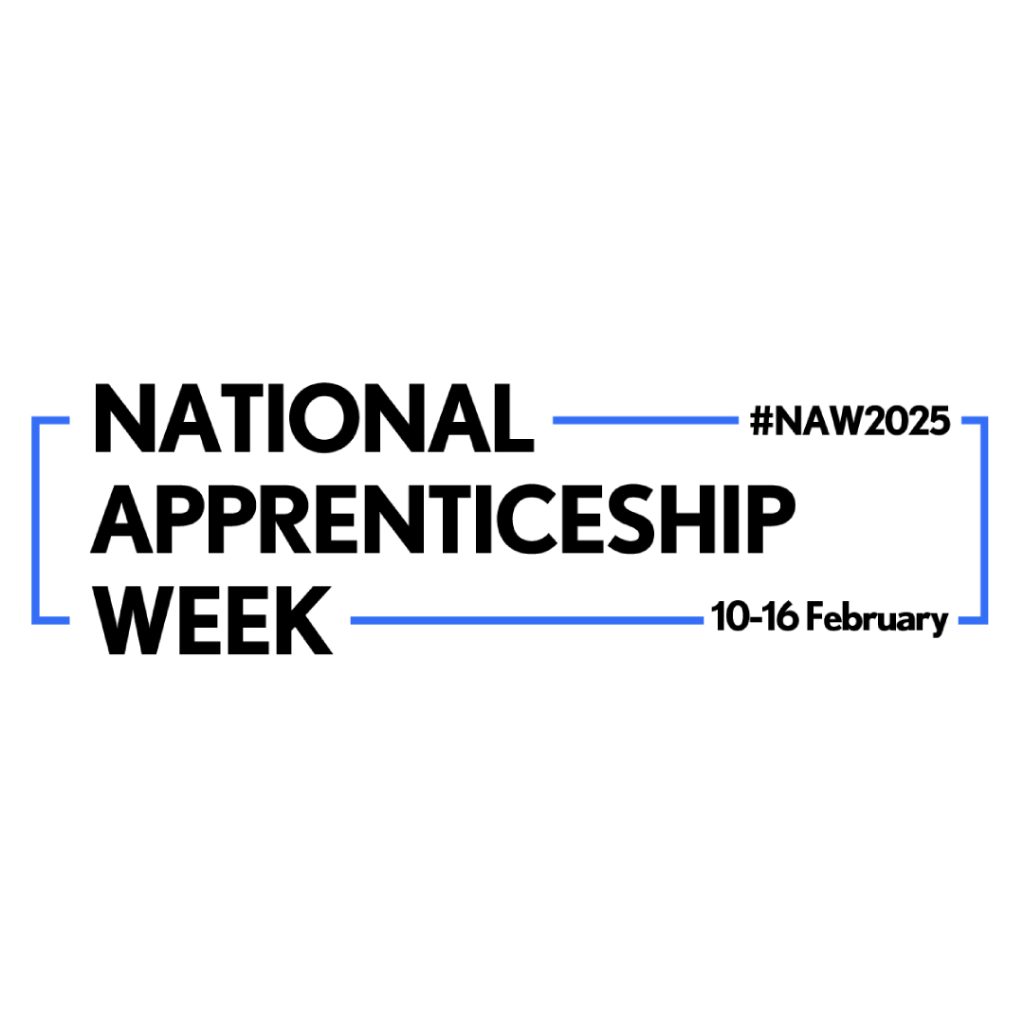
National Apprenticeship Week runs from 10-16 February 2025, with this year’s theme being ‘Skills For Life’. To mark this occasion, we’re taking a look back at the experiences and opportunities that previous St Mungo’s Apprentices have shared. Real-life success stories “Being on an apprenticeship with St Mungo’s has given me diverse experiences that I hadn’t had before, specially working alongside my clients and understanding with a more in depth knowledge on how to support my team and clients. Having a good, strong team has helped with my development and growing my confidence in key working daily. Every day I learn new things. My biggest achievement throughout the apprenticeship is that I have got more leadership skills and I am able to manage people & empower them to thrive for their goals.” – Noel, former Apprentice “I really do enjoy [the role]. It’s challenging at times. But most days, actually, are really good. You have really good interactions, really meaningful conversations, you can see small bits of progress in the people you work with.” – Ashley, former Apprentice The Value of Apprenticeships at St Mungo’s The Apprenticeship scheme at St Mungo’s was the first in the sector only open to those with lived experience, substance use, mental health, criminal justice service and recovery services, providing skills and experience apprentices need to find a job within the homelessness sector or further afield. Of those that have completed the scheme, many have gone on to further full time work with St Mungo’s or with other homelessness charities or further afield. The scheme offers 18 months paid work, a comprehensive training programme and the opportunity to gain a qualification as a peer support worker, and offers apprentices the opportunity to gain the skills and experience needed to equip them to work in our services and within the sector. Throughout your apprenticeship you will receive support tailored to your needs not only from your line manager and your course tutor but also from our Volunteering, Apprenticeships and Involvement team. Get involved! If you’re interested in finding out more about Apprenticeships and St Mungo’s, contact our Volunteering, Apprenticeships and Involvement team at apprenticeshipscheme@mungos.org to join the mailing list. Visit our Apprenticeship page to learn more about St Mungo’s programme. National Apprenticeship Week runs from 10 – 16 February 2025.
We can’t end homelessness alone

We know we can’t end homelessness alone. As well as working in formal partnerships, our teams often rely on other community groups and charities so our clients get what they need. One of our frontline workers, *Sam, tells us about his work with a client and Hackney Food Bank. It’s a Saturday morning, and Sam is collecting food for a client who arrived at one of our hostels overnight. His client has been sleeping rough and is trying to overcome substance use issues. He arrived with no food so this emergency parcel from Hackney Foodbank is a lifeline. Sam can empathise more than most, having been homeless for 10 years from the age of 16, and in and out of the criminal justice system for petty crime. He said: “I got into a St Mungo’s hostel in 2012 and started volunteering – eventually I applied for a role there. I’d never had a job before then. Our support workers help people learn to live independently; we help them access benefits and we take them to appointments. “From time to time I pick up emergency food from Hackney Foodbank for my clients. The man I’m supporting today has been rough sleeping for a year. He doesn’t have any food and he can’t cook. He has mental health needs and drug dependency, and he doesn’t know how to keep clean. I’m working on a safeguarding referral for adult social care for him. “Many of the people we support don’t have any food or any recourse to public funds. Sometimes I bring them with me to the food bank to collect, other times I pick up food for them. I believe in everyone we support – setting the foundations; giving them a place to start from is a help. I’m blessed to have something meaningful to do.” Sam, who has two young children, turned his life around after a difficult start. He added: “Life for me is good now. I have secure accommodation. I always thought I’d never get a job but once I got the opportunity with St Mungo’s I never looked back at the old life. It’s not how you start – it’s how you finish!” Hackney Foodbank is part of the Trussel Trust Network. The charity has six distribution centres and the Hackney Giving Van (a mobile food bank, which reaches other parts of the community.) Hackney Foodbank * Sam’s name has been changed to protect his identity.
The homelessness crisis must galvanise action from the future government
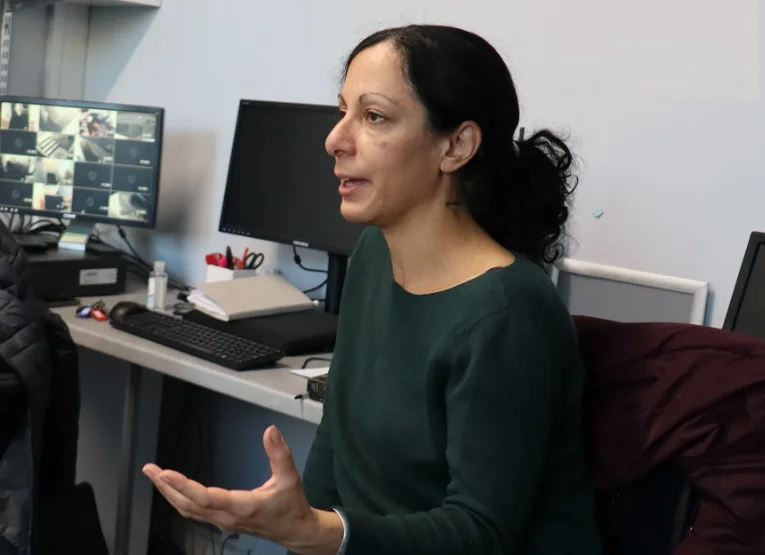
Emma Haddad, CEO of St Mungo’s The homelessness crisis must galvanise action from the future government. Reversing the recent and significant growth in homelessness will not be easy, but it is not impossible. Here are St Mungo’s suggested priorities for the next government to end homelessness and support people to rebuild their lives. We are, without a doubt, in a homelessness and rough sleeping crisis. Numbers for both are at all-time highs, with close to 4,000 people sleeping on the streets every night, and almost 80,000 households experiencing homelessness or at risk of it. Currently, our outreach teams are struggling to respond to the increasing number of people on the streets and our hostels are at capacity. There are not enough affordable or appropriate homes, making moving on from the streets more challenging than ever. St Mungo’s is here to end homelessness, but we cannot do it alone. We want to work constructively with whoever forms the next government to bring about fundamental change to a system that is failing. The situation is directly linked to political choices. We see the fall-out every day. People who have no choice but to sleep rough, people in work who cannot afford their rent, people who are fighting to rebuild their lives. It does not have to be like this. There are a number of different political choices that can be made after 4 July that can turn the tide on this crisis. We are asking the next government to focus on four areas: emergency support, prevention, recovery, and a long-term plan to ensure there is sufficient, appropriate and affordable housing for people to live in. It is complex, but far from impossible. First, we need to protect essential funding for homelessness support. We need to ensure that the current funding through the Rough Sleeping Initiative (RSI) and wider local authority funding is continued and expanded, so there is sufficient emergency accommodation and support available to help the growing numbers of people on the streets. Thousands of people rely on services supported by this critical funding and, despite skyrocketing demand, RSI funding is due to end in April 2025. If this funding is not extended, about a third of the projects that St Mungo’s delivers with local authorities may not be able to run. This funding must also be expanded, so that we can provide services that match the rapidly increasing demand and escalating running costs. Second, we need to take steps to prevent people becoming homeless in the first place. People living in the private rented sector are particularly vulnerable to homelessness. Recent government data shows that the private rented sector is increasingly unstable, with nearly 45% of households at risk of homelessness between October and December 2023 being in private rented accommodation. Despite being in the manifesto for the last government, progress was not made to pass the Renters’ Reform Bill. Urgent action is needed to protect renters from homelessness through comprehensive changes to current legislation. We also know that many people sleeping on the streets for the first time are coming from government institutions. From asylum accommodation leavers to people discharged from hospital or released from prison, we know that things can be done to ensure no one leaves these institutions without having somewhere safe to stay. The sharpest increase in homelessness from an institutional setting last year was from Home Office accommodation. Despite some positive changes, between July and December 2023 the number of people leaving asylum support accommodation and sleeping rough soared by an astounding 965.91%. Third, there must be recognition of the complexities of homelessness and rough sleeping, and significant investment in recovery. People sleeping rough experience some of the most severe health inequalities and are one of the most disadvantaged groups in our communities. We need to ensure that the health system is equipped to support people who have experienced homelessness. One such measure is ensuring that Integrated Care Boards have a dedicated focus on eliminating the health inequalities that people like our clients face. We need to reform the welfare system to remove barriers and disincentives to work. Almost two thirds of our clients in supported housing want to work, but many are reluctant because they know working will negatively impact their benefits.. This means that even when working more hours, their finances could fall off a cliff edge and put their housing at risk. The next government must also remove restrictions to full housing benefit entitlements under Local Housing Allowance rates, to help people into housing. Finally, we need more affordable and appropriate housing. All too often, even when we can provide people with emergency support and have worked with them to prepare for independent living, we cannot find them the right home. There simply isn’t the housing supply available. We need a long-term plan for more permanent housing. That means 90,000 new social homes per year, as well as supported housing and affordable private rented housing. We need a credible plan that shows how, over time, the new government will build capacity into the system which is appropriate to the needs and financial situations of all people experiencing homelessness. The trauma of homelessness devastates too many lives. It should not exist in the twenty-first century. However, it can be prevented by targeting the causes, intervening early, and investing in the right approaches.
How to register to vote if you’re experiencing homelessness
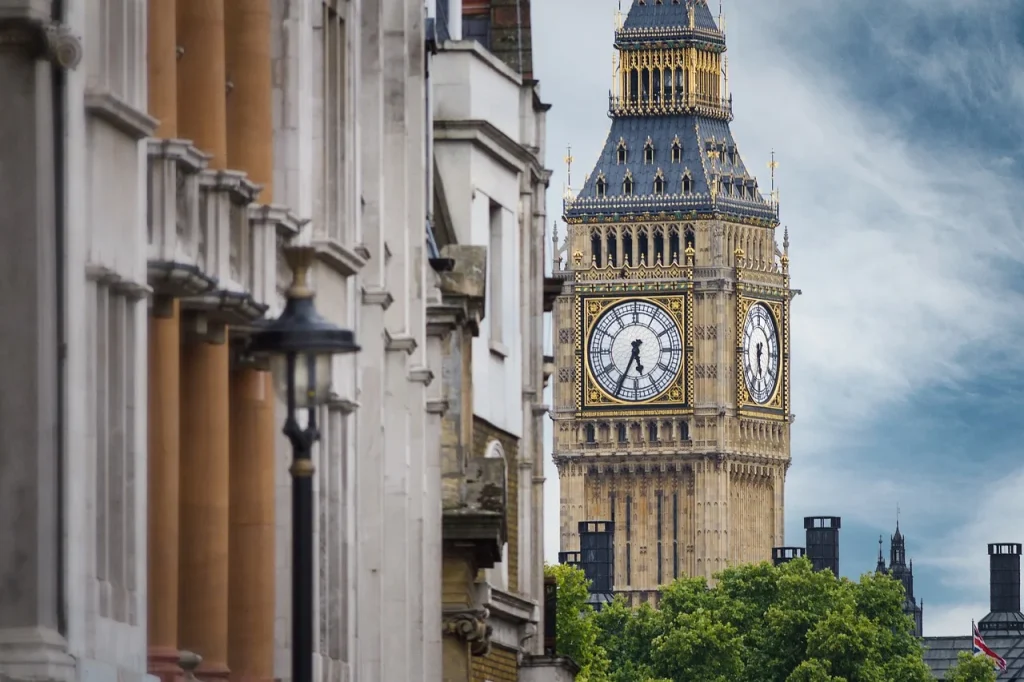
The general election has been called and we have a date – Thursday 4th July. People who are experiencing homelessness or have no fixed address can vote. Voting is a vital opportunity for all of us to make our voice heard. Below is a brief guide on how to register to vote with key links. There is also guidance on the requirement for voters to have valid photo ID which was introduced last year, and how people who may not have mainstream ID can apply for a Voter Authority Certificate. If you, or anyone you know is experiencing homelessness, please read and share this information to make sure that everyone who wishes to vote has the opportunity. When is the deadline to register to vote in the 4 July 2024 general election? You need to register by 11:59pm on Tuesday 18 June 2024 to vote in the general election on Thursday 4 July. If you want to vote by post, you must apply by 5pm Wednesday 19 June. And if you want a proxy vote, you must apply by 5pm Wednesday 26 June. Further information on the election in your area, including lists of candidates and information on your polling station can be found here. Who can register to vote? To register to vote in the UK general election, you must be aged 16 or over. You must also be one of the following: a British citizen an Irish citizen living in the UK. a Commonwealth citizen who has permission to enter or stay in the UK, or who does not need permission. You can register to vote in the general election if you will be aged 18 or over on the day of the election. There are different rules for who can register and vote in Scottish Parliament, Welsh Senedd and local elections in Scotland and Wales. You can check which elections you’re eligible to vote in here. You normally only need to register once – not for every election. You’ll need to register again if you’ve changed your name, address or nationality. How do I register to vote? The easiest way to register to vote is online, providing you know your National Insurance Number and date of birth. If you can’t provide one or either of those things, you will need to contact your local Electoral Registration Office (they will also post a paper form to you if you require it). You could also download a Register to Vote form and return it by post. How can I register to vote if I’m homeless/have no fixed address? You can vote if you’re experiencing homelessness, remanded in custody, or a patient in a mental health hospital. In order to vote, you need to give an address of a place where you have lived in the past, the place where you’re staying temporarily, or where you would be living if it were not for your current situation. If you are experiencing homelessness with no fixed address, you can register to vote by giving details of where you spend a substantial amount of your time. This could be a night shelter, or hostel, a day service you go to regularly. How do I vote? Once registered, you can head down to your local polling station in person, which will usually be in a public building, like a school or a local hall. If you live away from home or are abroad, you can vote by post. If you are unable to vote in person, you can also ask someone to vote on your behalf, which is known as a proxy vote. The eligibility criteria to vote in different elections can be found here. Do I need photo ID to vote? You’ll need to show photo ID when voting in person in some UK elections or referendums – this includes the 4 July general election. This legislation came into effect from May 2023. You’ll need it to vote in: UK parliamentary elections, including general elections and by-elections. recall of MP petitions in England, Scotland and Wales local elections in England (including councils, mayors, the Greater London Authority and parishes) Police and Crime Commissioner elections in England and Wales neighbourhood planning referendums in England local authority referendums in England (including Council Tax increase referendums) What photo ID is accepted? You’ll need one of the following types of photo ID to vote: a UK or Northern Ireland photocard driving licence (full or provisional) a driving licence issued by an EU country, Norway, Iceland, Liechtenstein, the Isle of Man or any of the Channel Islands a UK passport a passport issued by an EU country, Norway, Iceland, Liechtenstein or a Commonwealth country. a PASS card (National Proof of Age Standards Scheme) a Blue Badge a biometric residence permit (BRP) a Defence Identity Card (MOD form 90) a national identity card issued by the EU, Norway, Iceland or Liechtenstein a Northern Ireland Electoral Identity Card a Voter Authority Certificate an Anonymous Elector’s Document You can also use one of the following travel passes as photo ID when you vote: an older person’s bus pass a disabled person’s bus pass an Oyster 60+ card a Freedom Pass a Scottish National Entitlement Card (NEC) a 60 and Over Welsh Concessionary Travel Card a Disabled Person’s Welsh Concessionary Travel Card a Northern Ireland concessionary travel pass What if I don’t have accepted photo ID? If you do not have a type of photo ID that allows you to vote, you can apply for a Voter Authority Certificate. You only need to apply for a Voter Authority Certificate if: you do not have accepted photo ID. you no longer look like the photo on your ID. the name on your photo ID is different to your name on the electoral register. You’ll need to apply by 5pm on Wednesday 26 June 2024 to get a Voter Authority Certificate for the 4 July 2024 elections. How do
Celebrating our volunteers

Over 50 years ago, a group of volunteers wanted to do something to help the people they saw sleeping on the streets. They founded St Mungo’s. Today, volunteers continue to play a vital part in our work to end homelessness and rebuild lives. This Volunteers’ Week, we’re hosting celebrations to say a massive thank you to all 350 volunteers who have supported us this year. We’ll be announcing the winners of this year’s Volunteer Awards, with prizes generously donated by the Marsh Trust. Iver Morgan, our Head of Volunteering, Apprenticeships, Involvement, and Student Placements, said: “Whether they are answering the phones at Streetlink, translating for our clients,?delivering activities in our services, or using their lived experience to support others. Their contribution is immense. They give their time, skills and experience as we work to support people at a difficult point in their lives. We genuinely couldn’t run St Mungo’s without them.” To mark Volunteers’ Week, we talked to some of our volunteers about their experiences. Pat runs a gardening club with the residents in one of our services: “I noticed the rise of people on the streets in London, and I felt I had do something. I’m not qualified to do support work, but anyone can help, even in a small way. A professional gardener would turn up and the whole thing would be finished in a day. What they would do in three hours has taken me six weeks, because we work at the pace of the residents. I don’t get frustrated by that. It’s good for the residents, it’s good for me, and it’s good for St Mungo’s. Everybody benefits. Some of the residents have medical issues that impact their mobility, but there are still ways they can get involved. Even if they just sit and watch, they’re outside in the fresh air. And that’s a contribution. I ask the residents for instructions and involve them in the decision making process. As a volunteer, you need empathy. You’d have to have a heart of stone not to want to help these residents. There’s one resident who comes out to the garden every week, so I gave him his own gardening gloves. I said to him ‘here, these are for you. You take these and keep them in your room’. His face lit up. I’d like to thank St Mungo’s for giving me the opportunity to do this, and the staff who’ve made it possible. If you’re trying to build a career, especially in any kind of caring profession, a stint at St Mungo’s can only do you well. There’s a wide range of things you can do. The role I do is very specific, and it fits well with me. There are lots of other roles I couldn’t do – but there’s something for everyone.” See how you can use your skills to make a difference by exploring our current volunteering opportunities.
What is the Rough Sleeping Initiative?
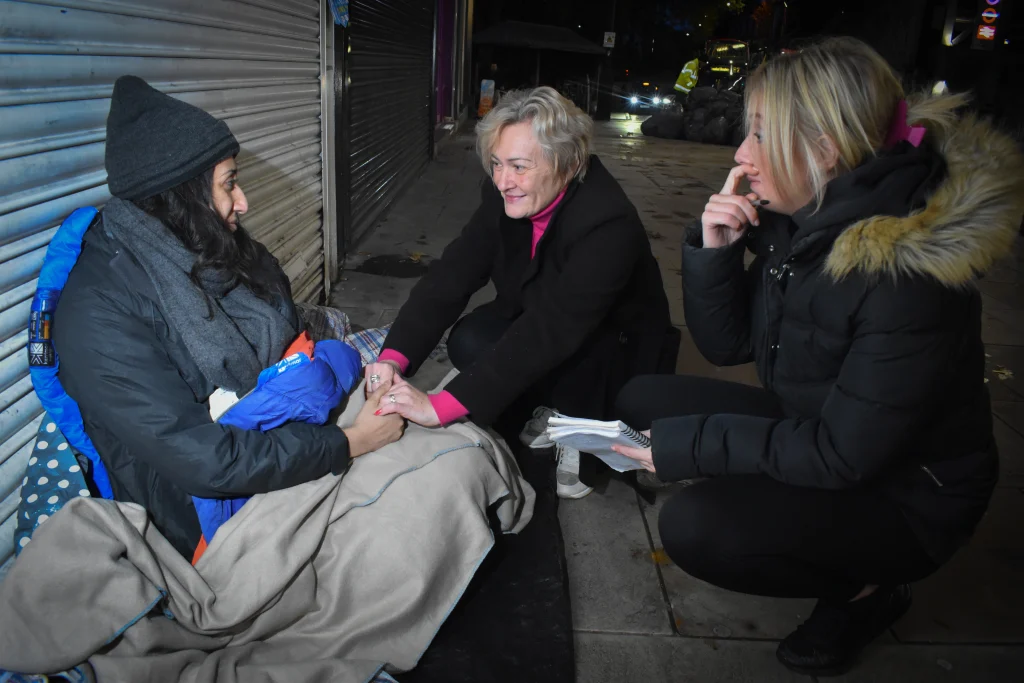
The Rough Sleeping Initiative is a critical issue for organisations across the homelessness sector. And as the Autumn Statement looms, it’s more important than ever that we understand what the initiative is, and why it’s vital it is continued. So, what is the Rough Sleeping Initiative? The Rough Sleeping Initiative is a package of measures, including a pot of funding allocated by the government to tackle rough sleeping. It exists to provide targeted support for frontline services who work directly with people who are sleeping on the streets. Who receives the funding? Local authorities receive the funding and distribute it to local services and charities. The initiative funds outreach teams, emergency accommodation and support workers. St Mungo’s has received part of this funding since its inception. Why hasn’t homelessness reduced in line with this funding? The cost of living crisis has soared in recent years, and this has put more people at risk of homelessness. So much so that data released in April 2024 showed a 33% increase in rough sleeping numbers in London. Moreover, the funding from the Rough Sleeping Initiative hasn’t increased in line with the rising demand for our services, and the increasing costs of running them. When is it due to end? The policy was implemented in 2018 with funding packages of different lengths. But with this package of funding starting in 2022; it is due to end in April 2025. If it ends as planned, this puts thousands of people experiencing homelessness at serious risk, as their access to services could end abruptly. What can be done about it? We are campaigning for the Rough Sleeping Initiative to be extended and uplifted alongside wider critical Government funding. As a result, frontline workers like ours to meet the growing demand for our services.
